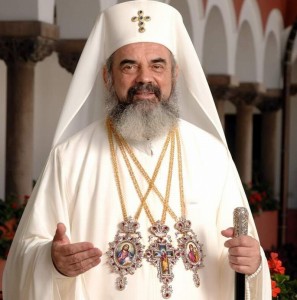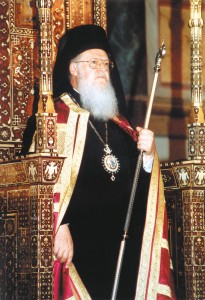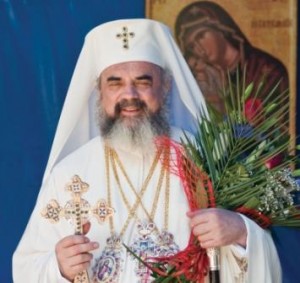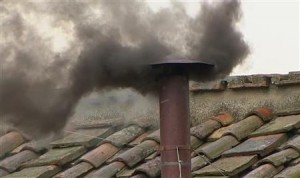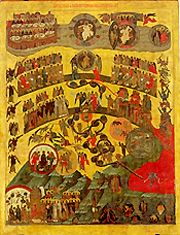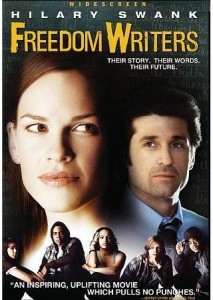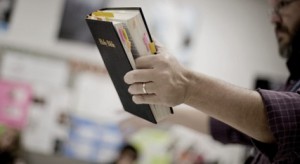On this day, Soul Saturday, according to the order instituted by our Holy Fathers, we call to remembrance all those who have died from the beginning of the ages in faith and in the hope of the resurrection and of life eternal.
The present commemoration of the dead is based on the reality that many of our fathers and mothers, brothers and sisters died under such circumstances that funeral prayers and normal memorial services could not be offered for them. Either in a foreign land or on the seas, on impassable mountains or in gulfs or precipices, through starvation or diseases, in wars, in fires, or during earthquakes, and in so many other ways, perhaps in poverty or in need, our known and unknown brothers and sisters in Christ did not enjoy the chanting and necessary spiritual care. Therefore, our Holy Fathers, moved by their love for humanity, appointed the present celebration to take place in the Church everywhere, having received this from the Holy Apostles, so that all who have died through various mishaps or accidents may be remembered together, for the benefit of their souls. There is great profit to the soul from these memorials in the Church. This is the first reason.
The second reason is that since the Holy Fathers were going to place the memory of Christ’s Second Coming on the following day, Sunday, they appropriately commemorate the souls today, as it were, propitiating the fearful Judge, who cannot be deceived, to apply His usual compassion and to appoint them to the promised delight.
Furthermore, the Sunday following tomorrow is dedicated to Adam’s exile from Paradise, after which a new life is considered to begin for ourselves. Before this new beginning, the present memorial service has as its purpose to warn and frighten the living, so that they may meditate on their own death and proceed more diligently in the spiritual struggles of Great Lent. After their falling asleep, the Judgment shall follow by the Judge who cannot be bribed.
We always remember the souls of the dead on the Sabbath, for the Sabbath (Saturday) is the day of rest. In Hebrew, Sabbath literally means “rest.” As the Jews have this day for their repose and paused from every work and professional dealing, we Christians have it to remember the repose of our those who preceeded us. On this day, we hold memorial services and have koliva* blessed in the church, give alms, and perform various works of mercy. All these practices are of great benefit to the departed souls. Since the Orthodox Church does not celebrate Divine Liturgies on weekdays during Great Lent where the dead can be commemorated, the second, third, and fourth Saturdays of the Fast are designated as Soul Saturdays.
There are many proofs that the souls of the departed can be greatly benefited by what is done in their behalf. St. Marcarios the Egyptian once saw the dry skull of a pagan by the road on his way, and asked, saying, “Do you ever have any kind of consolation in Hades?” And the skull answered, “Yes, Father, especially when you pray for the sake of the dead; abundant is the comfort which we then enjoy.” The great man became very happy, because he always prayed for the dead and wished to be assured of the results of his intercessions.
Another saint, Gregory the Dialogist, saved the Roman Emperor Trajan through his prayers, although he heard from God never to pray like that on behalf of an impious nonChristian again. Also Theodora the Empress, by the prayers of the holy men and confessors, saved her husband, the iconoclast Emperor Theophilos abhorred by God, from the everlasting torments.
In his funeral oration to his brother Caesarios, St. Gregory the Theologian recommends alms on behalf of the reposed as being good. And the great Chrysostom in his commentary on Philippians says, “Let us think of ways to benefit the departed. Let us give them what help we can, namely almsgiving and offerings. For truly this brings them great advantage and very much gain and benefit. The custom of the priest commemorating those reposed in faith over the awesome Mysteries has not been without purpose nor arbitrarily ordained and delivered to God’s Church by His all-wise Disciples.” Again, “In making arrangements when you dispose of your property, together with your children and relatives, let your will also include the name of your Judge as a joint heir, and let not the mention of the poor be absent …”
St. Athanasius the Great also says that even if one has died and dissolved into the air, do not decline to provide oil and candles at the grave and to plead with Christ our God, for they are acceptable to God and bring great recompense: if the deceased was a sinner, that you may lose his sins; if righteous, that it may add to his reward. If one is a stranger without means, having no one to take care of these matters, God, being righteous and compassionate, will proportionately measure out to him His mercy, as He knows best. Moreover, he who offers such services to the dead also partakes of the reward, because he has shown love and concern for the salvation of his neighbor. It is as when one anoints a friend with perfumes, he receives the sweet aroma first. As for those who do not fulfill the wills and testaments of the deceased concerning these matters, they will positively be condemned.
Until Christ’s Second Coming, whatever is done for the souls of the dead is beneficial, as the Fathers say, particularly to those who had done some small good deeds when they were among the living. Even if the divine Scriptures declare certain things as needed for the chastening of the majority, yet as a rule God’s love for man prevails. For if the balance of good and shameful deeds is even, God’s love for man prevails. If the scale is weighed down a little by evil deeds, again His exceeding goodness prevails.
In the other life, everyone will be acquainted even with those whom they have never seen before, as the divine Chrysostom says, deducing this from the parable of the rich man and Lazarus. All will recognize each other, but not from any bodily characteristics. For all shall be one age, and traits from birth will be absent. Rather, we shall recognize each other through the soul’s spiritual eyes, as St.Gregory the Theologian says in his funeral oration to Caesarios: “Then I shall see Caesarios, beaming with joy and glorious, such as you have often appeared to me in my dreams, O most beloved of brothers.”
St. Athanasios the Great also says in his homily on the dead that until the time of the universal resurrection it has been granted to the saints to recognize each other and revel together, while the sinners, on the other hand, have been deprived even of this. Regarding the holy martyrs, they are capable of observing our actions and even of visiting us. Then all shall know one another when the hidden secrets of every man shall be revealed.
We should know that, for the time being, the souls of the righteous dwell in certain places set aside for them, and the souls of the sinners in their own location. The former rejoice in their hope, but the latter grieve in expectation of future suffering. Therefore, the saints have not yet received the promised blessings, according to the words of the Holy Apostle Paul, who says, “God having provided something better for us, that they should not be made perfect apart from us” (Heb. 11:40).
We should also know that not all who have suffered death by various accidents (falling down from precipices, being burned in fires, being sunk in seas, or perishing by starvation, poison, frost, and so on) have had such an end as a result of God’s command. For these are God’s judgments: some occur with His approval, others by His permission. Still others occur as a warning, a threat, or a chastisement. By foreknowledge He knows and is aware of everything, and everything occurs by His will, as with the sparrows about which the Holy Gospel speaks. He does not order that, for example, one man is to die by drowning and another to die normally, one as an old man and the other as an infant. But once and for all He determined — with some exceptions — the general times and various kinds of death in man. Within these constraints do the various means of death occur, without God’s determining them precisely from the beginning, only knowing. But in relation to the life of each and every person, God’s will plans the time and the manner of each one’s death.
St. Basil the Great speaks about the limits of man’s life, although he is alluding to God’s words, “For dust you are, and to dust you shall return” (Gen. 3:19). St. Paul also writes to the Corinthians, “For he who eats and drinks in an unworthy manner eats and drinks judgment to himself, not discerning the Lord’s body. For this reason many are weak and sick among you, and many sleep” (1 Cor. 11:29-30). Here the word sleep refers to death. The Holy Prophet David says, “Do not take me away in the midst of my days. Your years are throughout all generations”(Ps. 101:25). Again, “You have made my days a few spans, and my existence is nothing in your sight” (Ps. 38:6). The Holy King Solomon says, “Son, honor your father, that you may live many years, and not die before your time” (Ecclus 3:5-6). And the Lord himself, speaking to Eliphaz the Temanite, says, “For I will accept him, lest I deal with you according to your folly; because you have not spoken of Me what is right, as my servant Job has” (Job 42:8).
Hence it is evident that there is no set term of life. Or, if there is one, it is whatever God wills. For as He so wishes He adds to or deletes from the time of the life of this or that individual, administering all things for our benefit. And when He so wills, God arranges both the place and the time of repose. According to St. Athanasios the Great, the term of each person’s life is set by the will and counsel of God: “Through the depths of Thy judgments shalt Thou care for all, O Christ.” According to St. Basil the Great, death comes as soon as the term of life has been fulfilled; by the words term of life, God’s will is meant. For if the term of life had already been determined, then for what do we need God, or even a physician? And why do we pray for our children?
One ought to know that baptized infants who die shall enjoy the bliss of Paradise; those not baptized and those of the heathen shall go neither to the place of bliss nor to Hades.
When the soul has left the body, it no longer has any concern for earthly things but is continually concerned with matters in the next life.
We celebrate the first memorial service on the third day after death, because by the third day the dead one’s appearance is altered. We serve the second memorial service on the ninth day after death, because by this day the entire body is dissolved, except for the heart. We serve the third memorial service on the fortieth day, for by this day the heart has deteriorated. The same progression, in reverse order, is made at birth: by the third day after conception the heart is formed; by the ninth day the flesh is fashioned, and by the fortieth day the full form appears.
